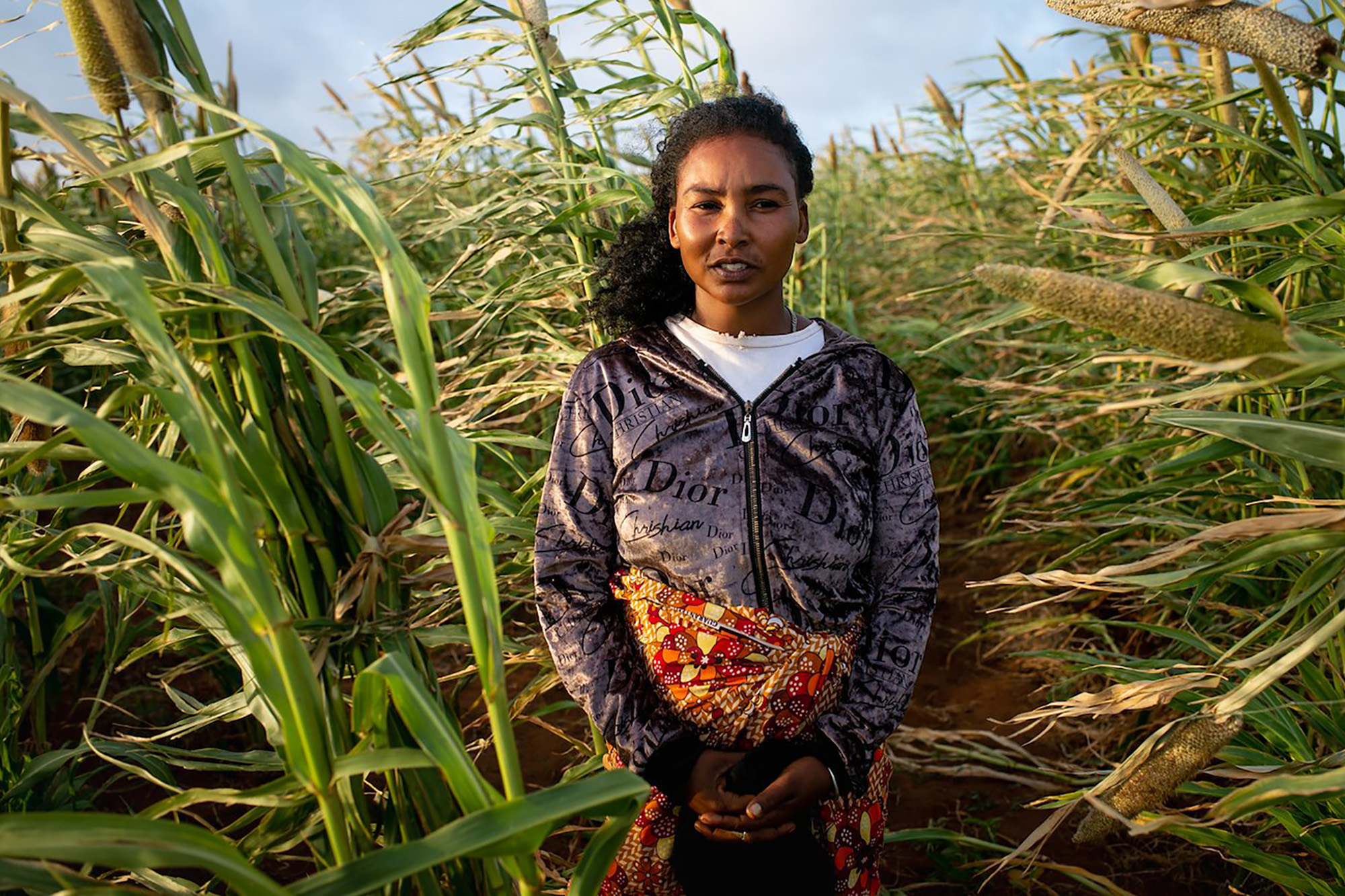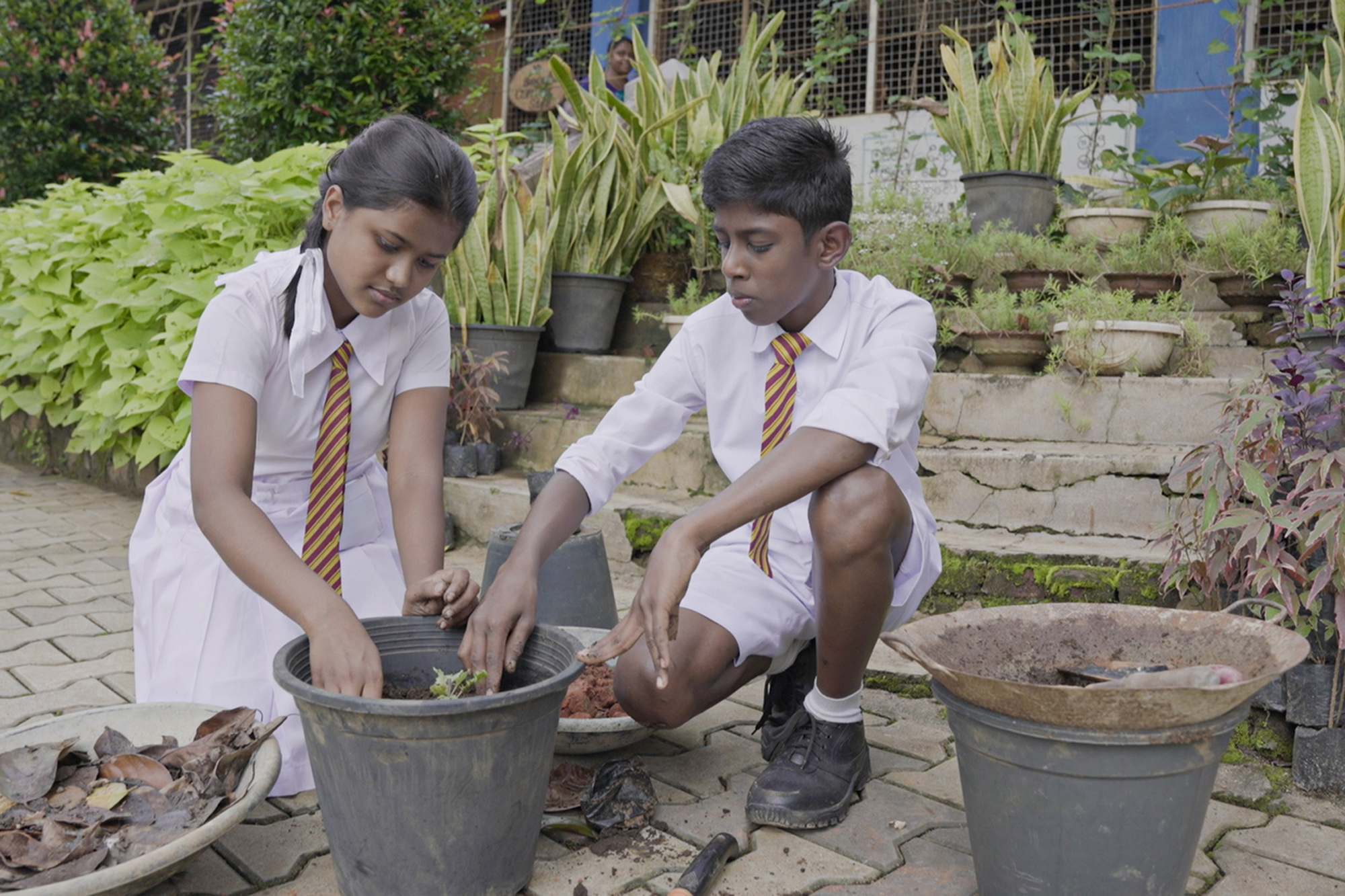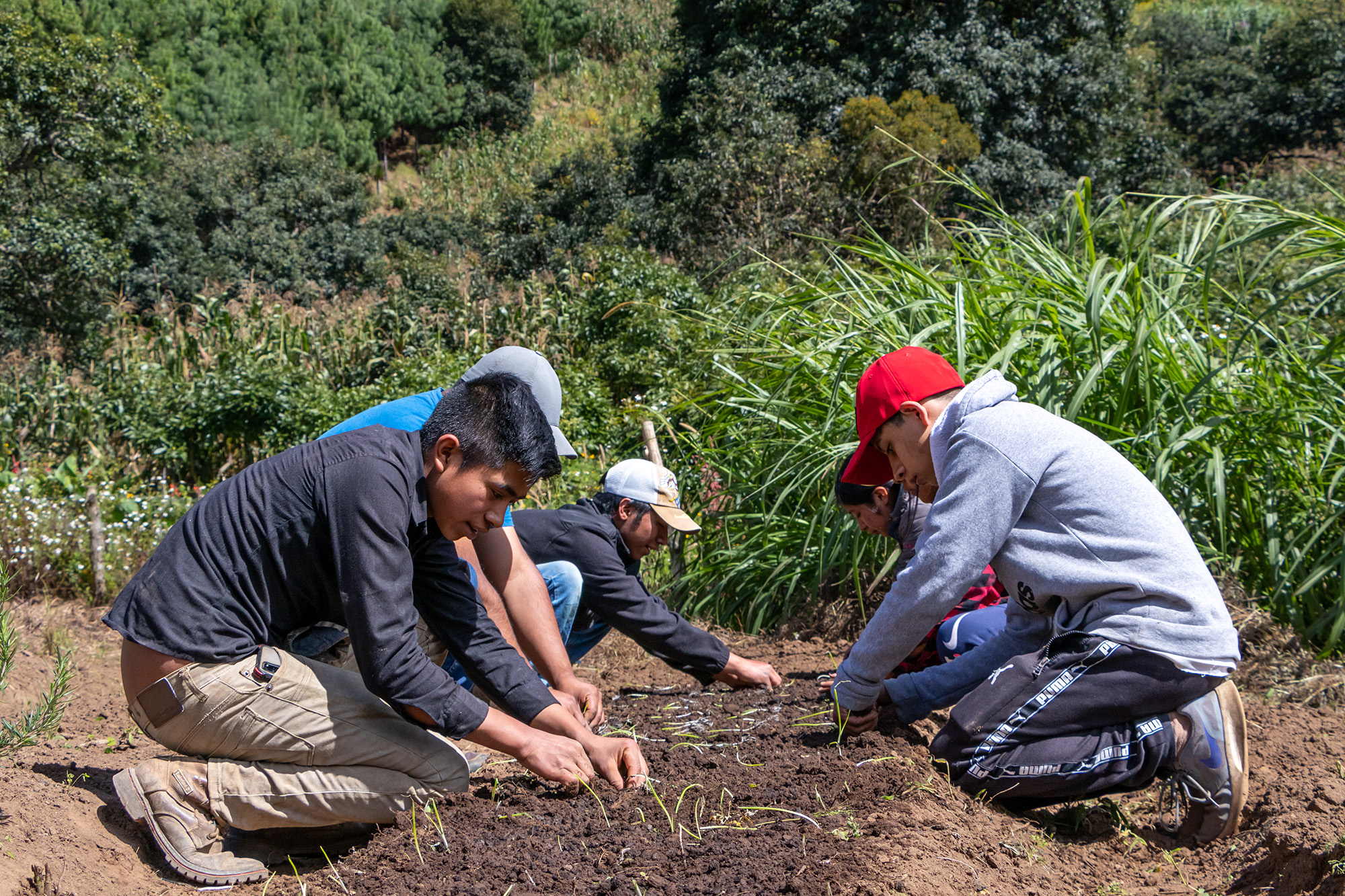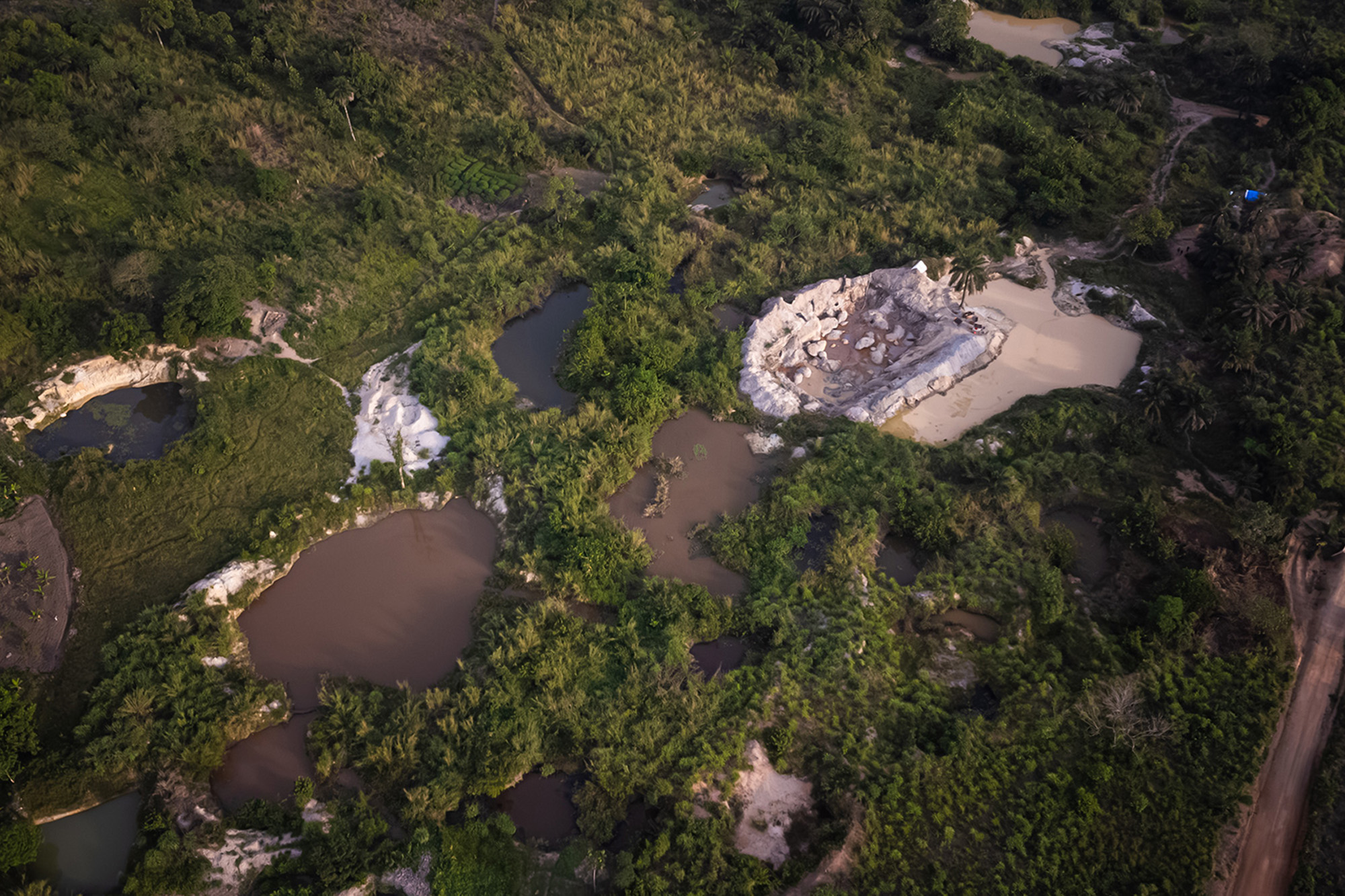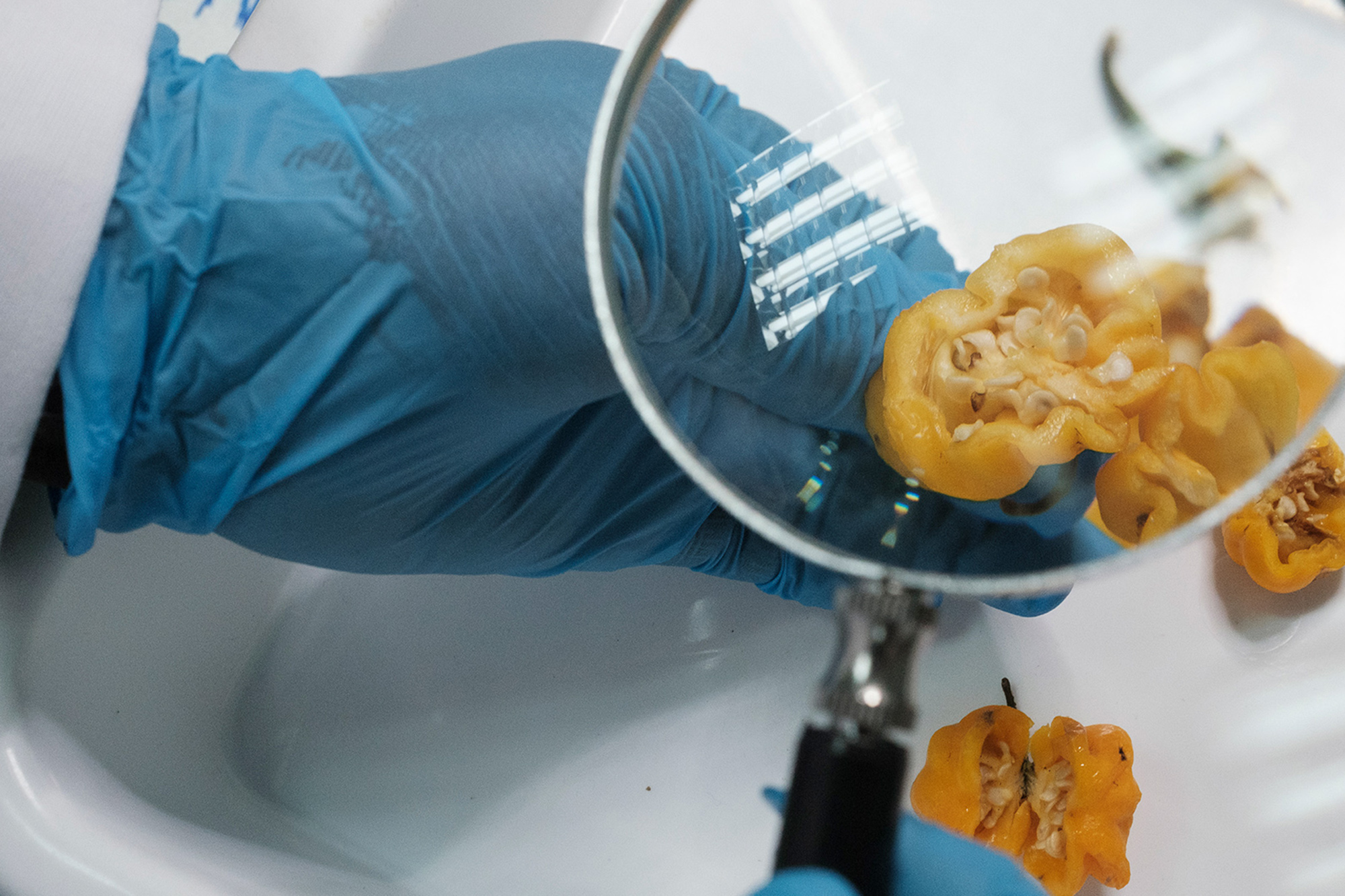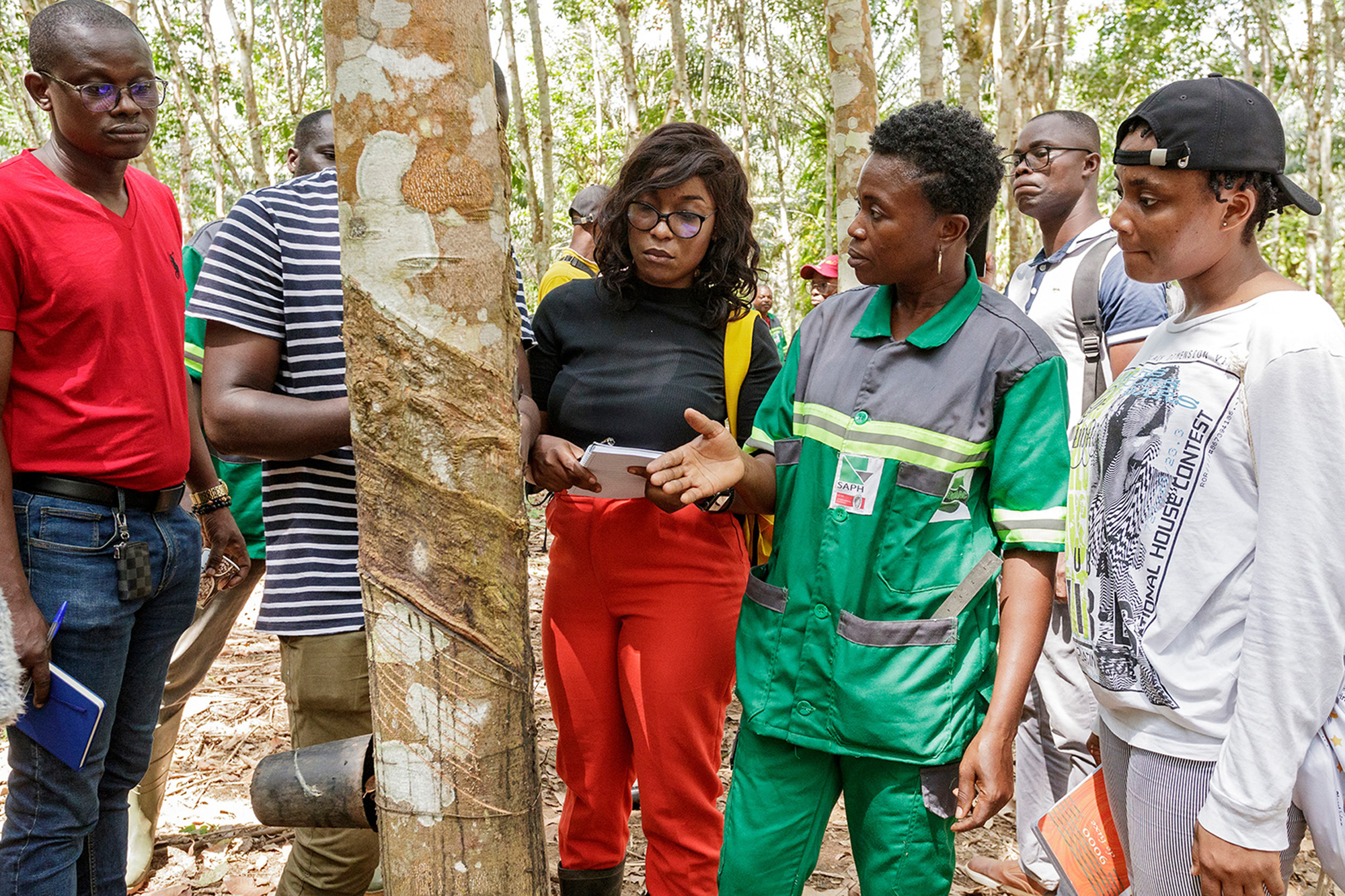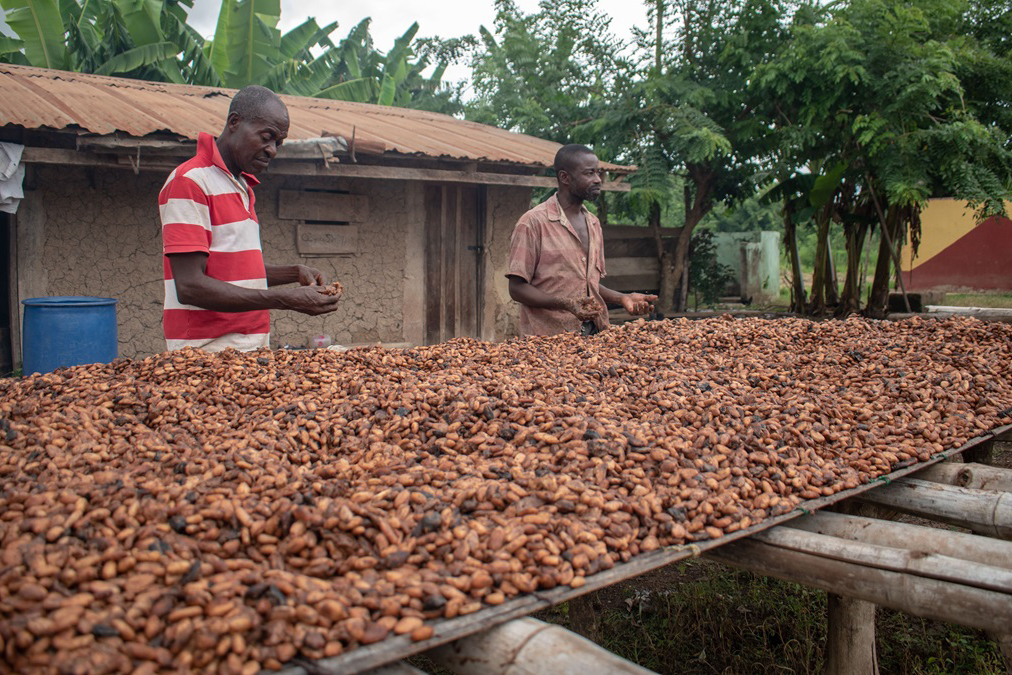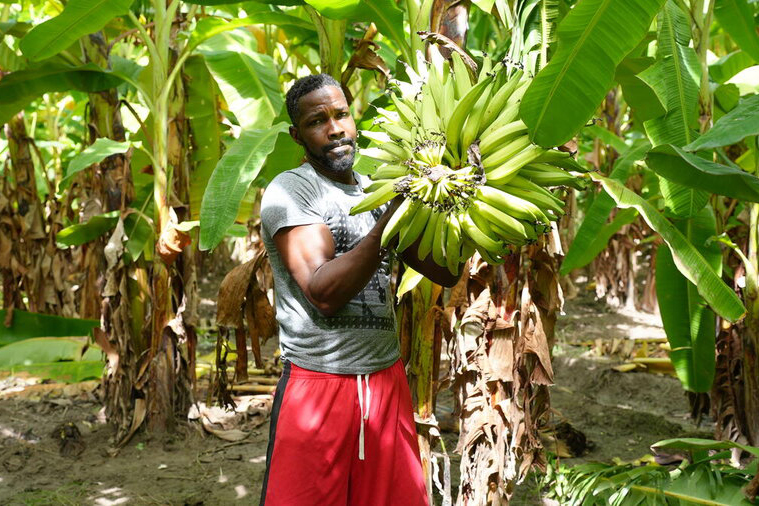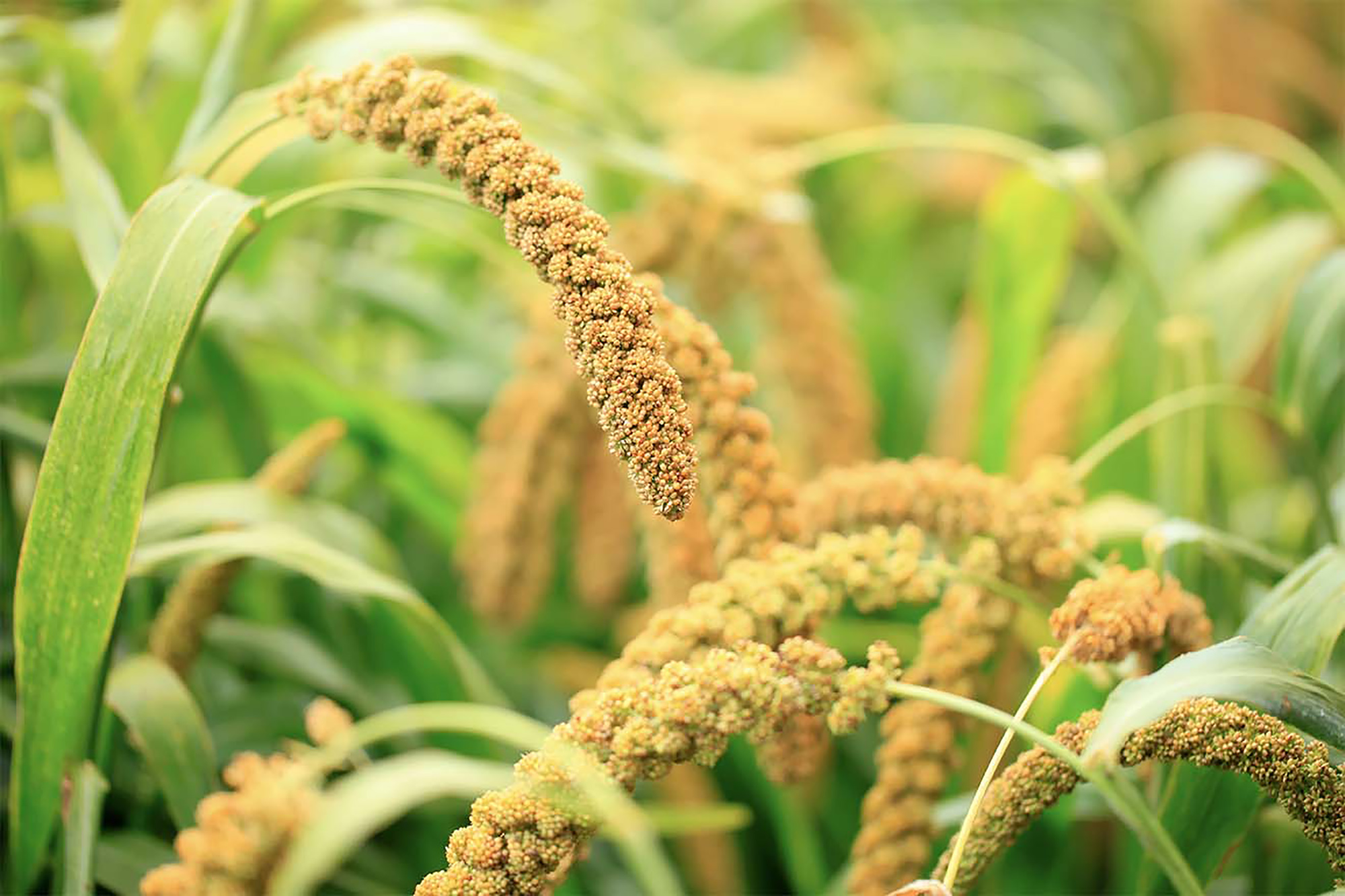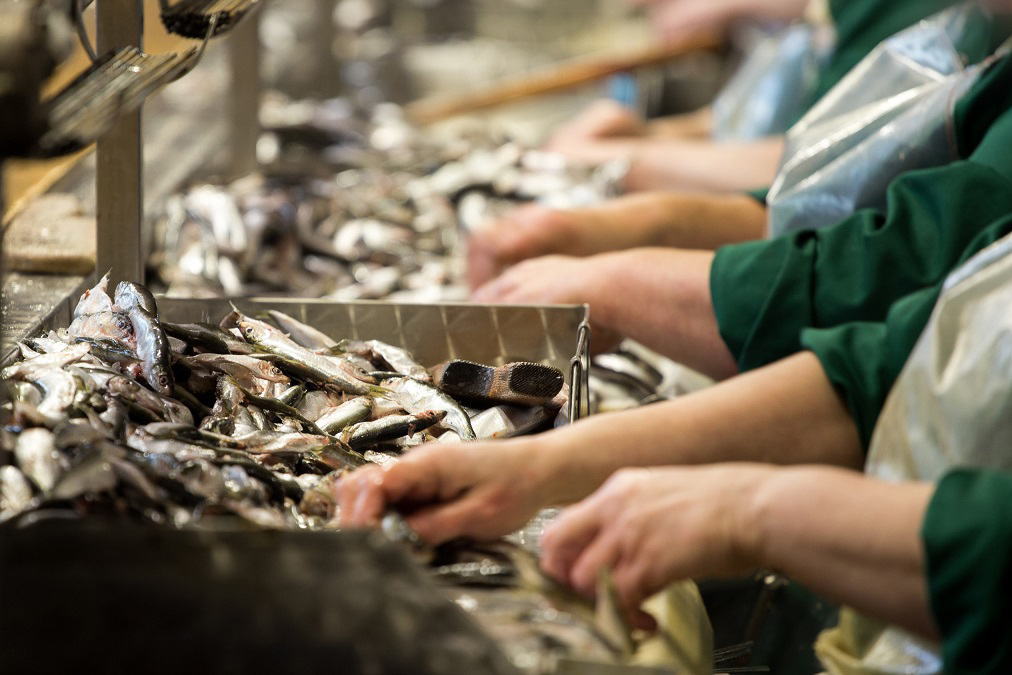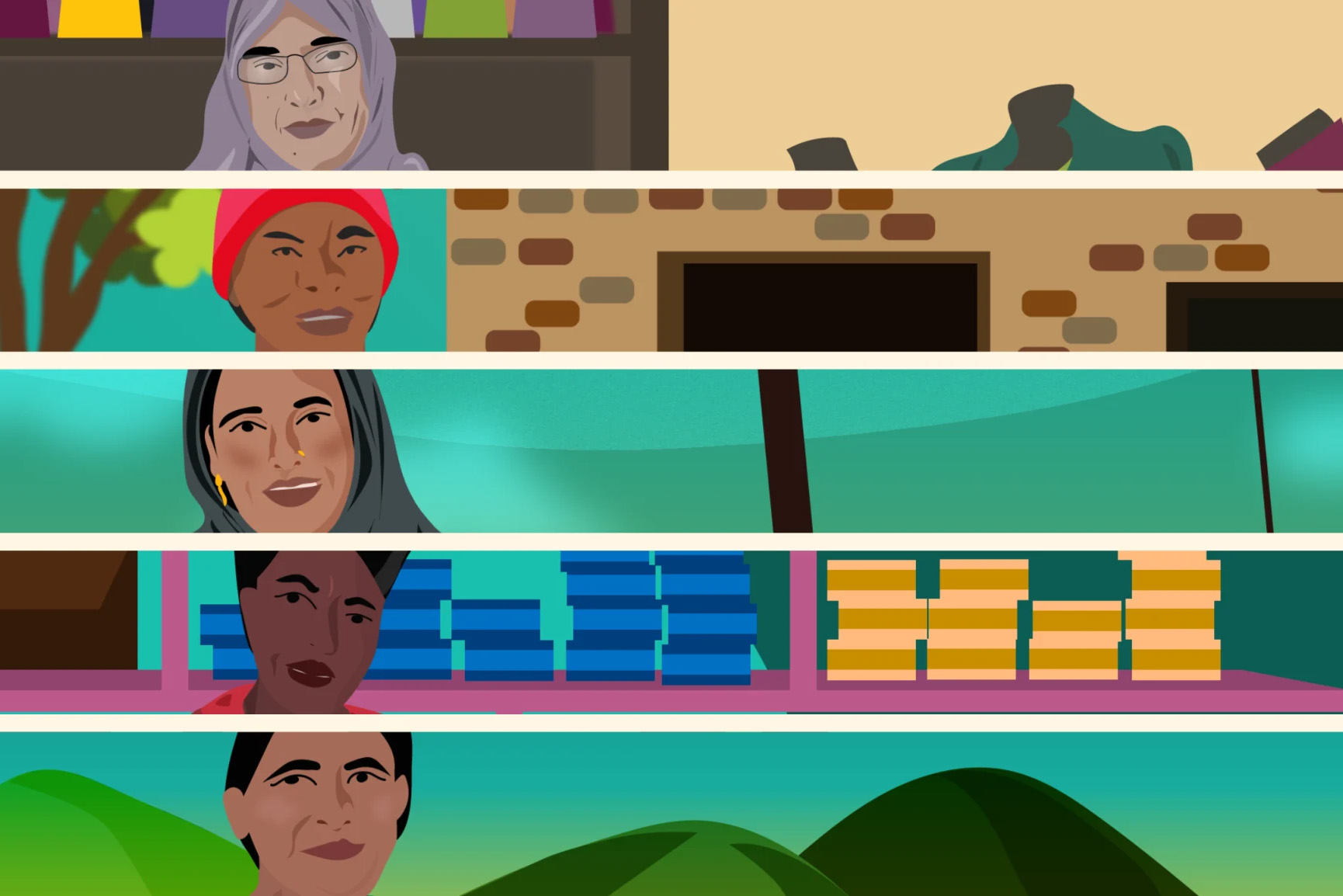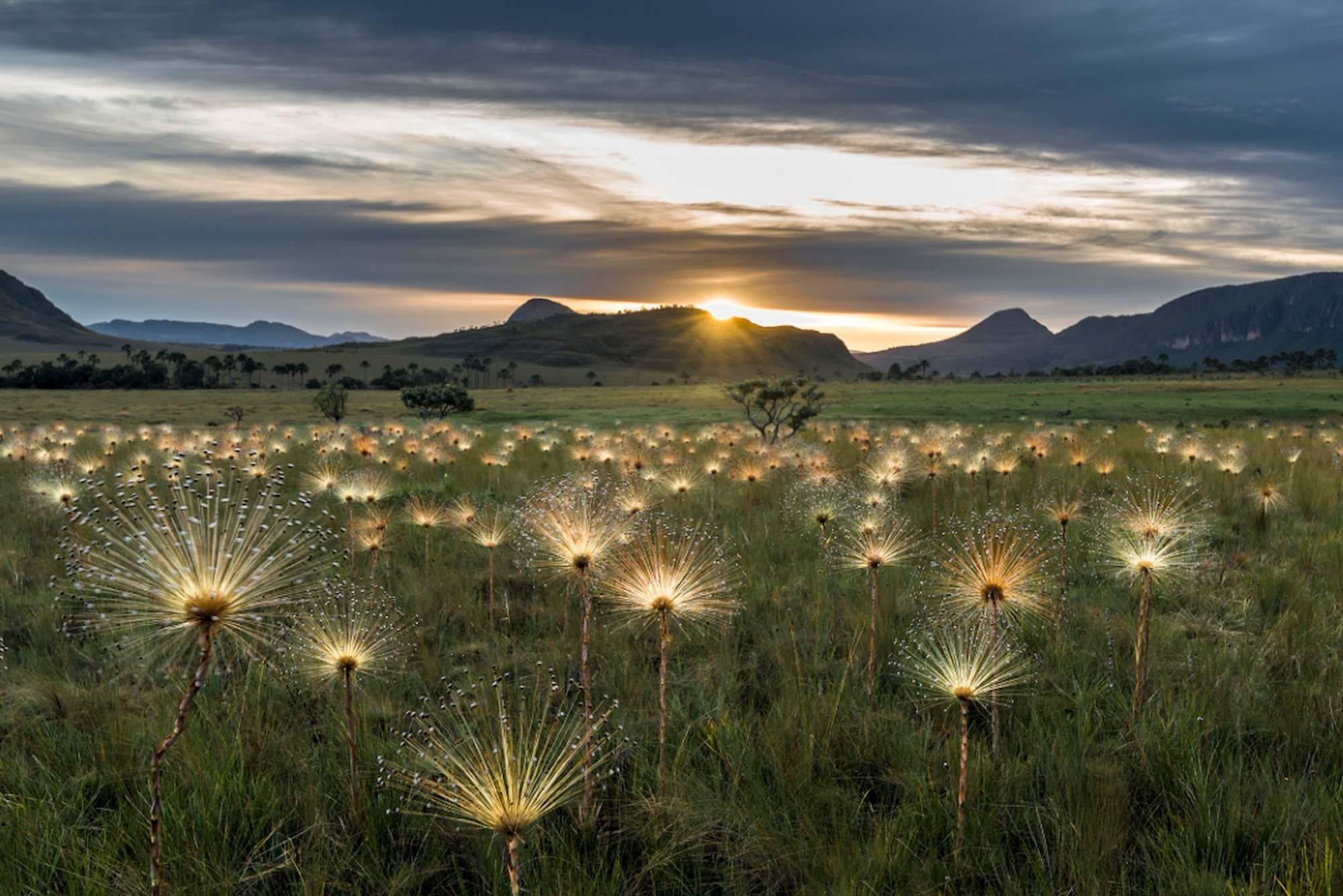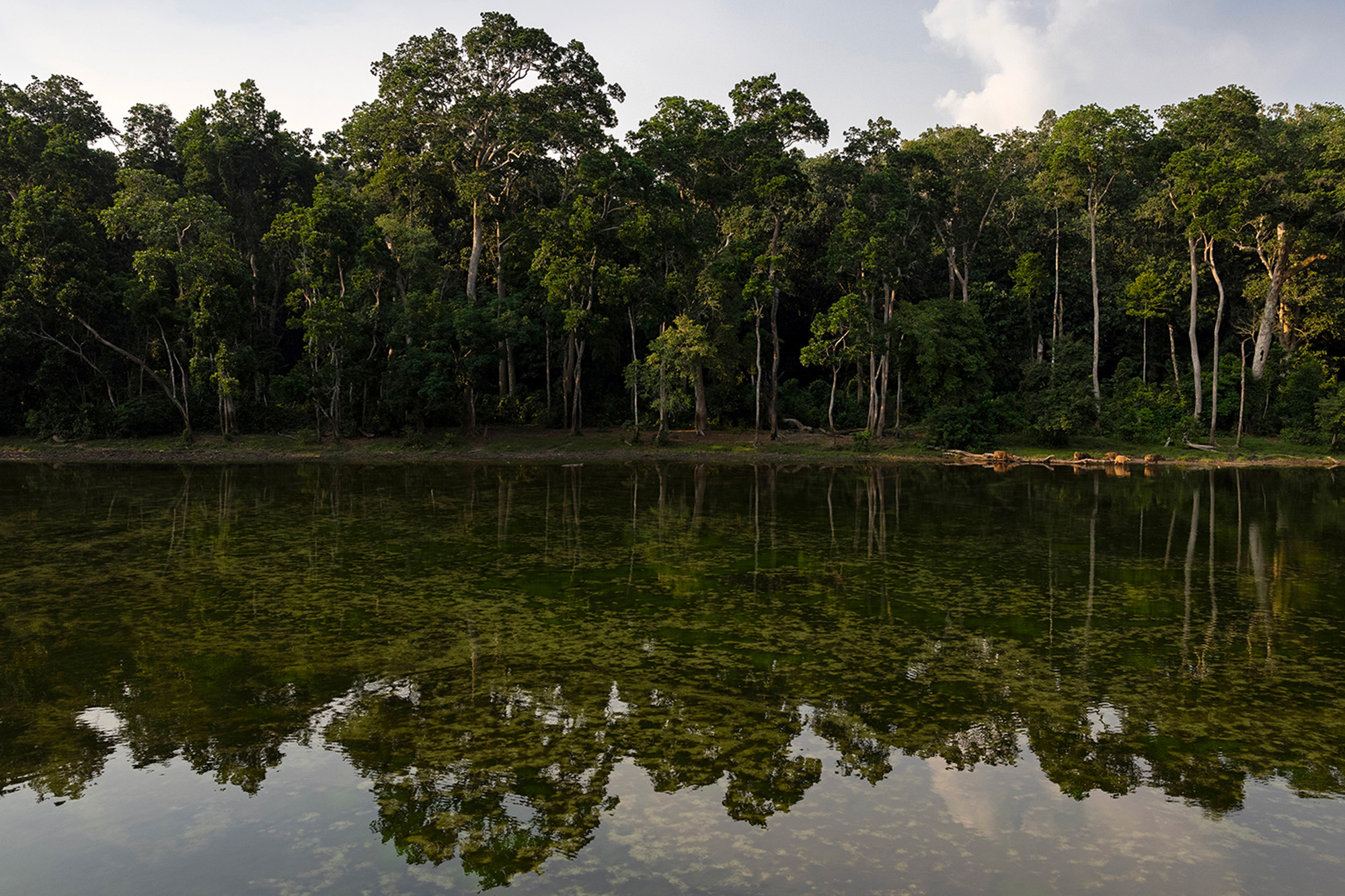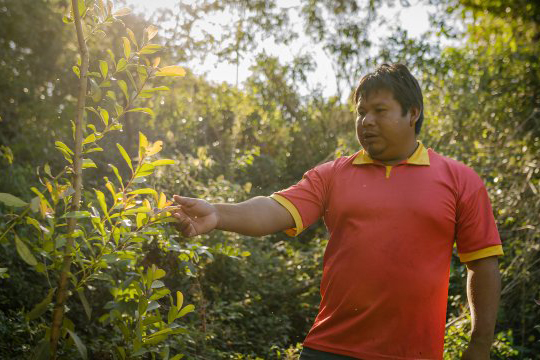The Food and Agriculture Organization of the United Nations (FAO) is helping farmers in southern Madagascar to prevent the impact of recurring droughts. In partnership with local organizations, they are strengthening community resilience in areas deeply affected by climate change. The key is to take action before the predicted impact of climate disasters. Madagascar is the world’s fourth most vulnerable country to climate change, and more than 2.3 million people need assistance to cope with the consequences of repeated droughts and recent cyclones. Despite this, current projects lack funding.
Students at Senkadagala School in Sri Lanka cultivate fruits and vegetables in their school garden to prepare meals. The garden also yields plants that are sold to promote an entrepreneurial mindset. The programme is part of the Entrepreneurial School Garden initiative implemented by the Food and Agriculture Organization of the United Nations (FAO) to promote healthy eating habits and nutrition. The students learn about their ecosystem and use modern agricultural methods to control weed growth and insect infestation and maximize productivity.
San Juan Comalapa is an agriculturally based municipality located in the central highlands of Guatemala. The majority of the population consists of indigenous Mayan-Kaqchikel peoples who rely on farming for their livelihood. In these territories, youth frequently migrate to other countries due to the lack of employment and business opportunities. Young indigenous women are the most affected, having fewer possibilities to get well-remunerated jobs. To provide viable livelihoods and prevent outmigration, the Comalapan Producers Association (ASPROC) offers capacity-building and training activities for young farmers in the region.
The district of Kono in eastern Sierra Leone has been scarred by diamond mining, leading to a loss of topsoil, erosion, and conflict. However, a project by the Food and Agriculture Organization of the United Nations (FAO) is helping to reclaim the land for agriculture and generate employment opportunities for young people in the region. Through the initiative, young people are learning farming skills and using green techniques to rehabilitate the mined-out areas for organic horticulture and beekeeping.
The Food and Agriculture Organization of the United Nations (FAO) promotes a One Health approach that values the interdependence of health between people, animals, plants and the environment. It calls on different sectors to work together to promote well-being and address threats to health and ecosystems. This approach also drives agrifood system transformation by addressing threats such as pests and diseases in animals, plants, and forests that reduce productivity, endanger biodiversity and threaten livelihoods. Some of the issues that FAO addresses by utilizing a One Health approach include antimicrobial resistance, overuse of fertilizers and synthetic pesticides, soil degradation, zoonotic diseases, and pandemics.
The work of statisticians is crucial to address food insecurity and improve food productivity. Young African women are working to bridge the data gap in their countries and improve the agricultural landscape. The Food and Agriculture Organization of the United Nations (FAO) Global Strategy to Improve Agricultural and Rural Statistics programme helps young statisticians to learn how statistical theory applies to real-life agricultural production and yield. FAO offers scholarships to applicants in African countries to pursue a one-year master's programme in Agricultural Statistics. The programme covers data collection and analysis, sustainable practices, and leveraging technology.
Climate change-induced cocoa price hikes are affecting chocolate lovers globally, highlighting the urgent need for climate action.
Grasping the extent of food waste through robust measurement, as highlighted in the Food Waste Index Reports, is crucial for catalyzing essential action and progress towards achieving SDG 12.
Farmers in Haiti's Artibonite department, face dire challenges due to armed bandits plundering crops, underscoring the urgent need for security and stability to ensure food security and long-term resilience in the country's agricultural sector.
The International Year of Millets, which began in 2023, is nearing its end. It has been an invaluable opportunity to spotlight the nutritional and health benefits of millets, as well as their adaptability to challenging growing conditions, including climate change and minimal inputs. Consequently, they offer an ideal solution for nations seeking to diminish dependence on imported grains. If you're intrigued by the diversity and culinary potential of millets, explore this recipe book with enticing recipes from various regions, cuisines and cooking skills. Join the closing event organized by FAO.
UNCTAD and WHO introduce a novel framework unveiling trends and health implications of processed food trade, crucial for promoting nutritious diets and enhancing food security worldwide.
Investing in women in agriculture is the surest path to prosperity and food security, empowering communities and fostering a sustainable future.
The Cerrado savannah, situated primarily in Brazil, is the world's most diverse savannah in terms of its biodiversity. The United Nations Development Programme (UNDP) collaborates with local partners to promote livelihoods, safeguard ecosystems, preserve traditions, and bring socio-biodiversity to market shelves. The Institute for Society, Population and Nature (ISPN), in partnership with UNDP, was chosen in 1994 to manage the Small Grants Programme in Brazil, which is known as the Fund for Promotion of Productive Eco-social Landscapes. SGP Brazil has supported over 890 projects in the Cerrado, Caatinga and Amazon regions so far.
In Kabo village, men play a game with beans. The beans represent wild animals, the bag is the forest, and the players are hunters. Once the bag is empty, they all lose. This game is designed to show the consequences of unsustainable hunting on future generations' food and incomes. The Bantu and Baaka Indigenous Peoples groups in the Congo rely on wild meat as their main source of protein and income. However, overhunting, deforestation, pollution, diseases, and climate change have reduced the population of wild animals in the Congo Basin. The Sustainable Wildlife Management Programme, coordinated by the Food and Agriculture Organization of the United Nations (FAO) and three other organizations, works to restore the balance between food security and wildlife conservation.
For generations, Ariel Benitez's ancestors, the Ava Guaraní people, one of the Indigenous Peoples living in eastern Paraguay, have been harvesting the green leaves of the yerba mate tree to make the bitter, caffeinated brew beloved in South America and beyond. With wild yerba mate trees increasingly scarce due to climate change, this community, with FAO’s assistance, is planting new trees to support the environment and their livelihoods. They've planted more than 1,500 of them in combination with several other species of native trees, which are important for both the local ecosystem and as traditional sources of food and medicines.

